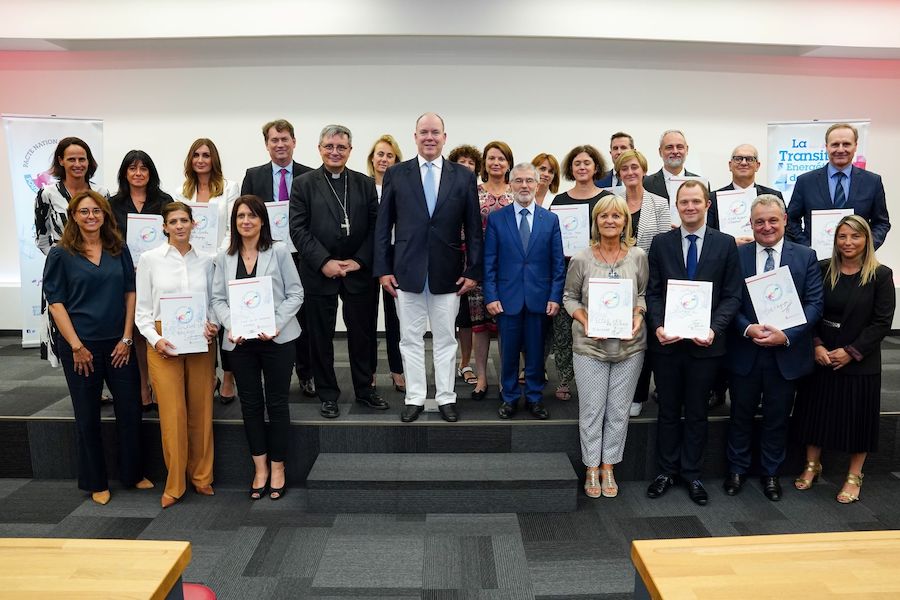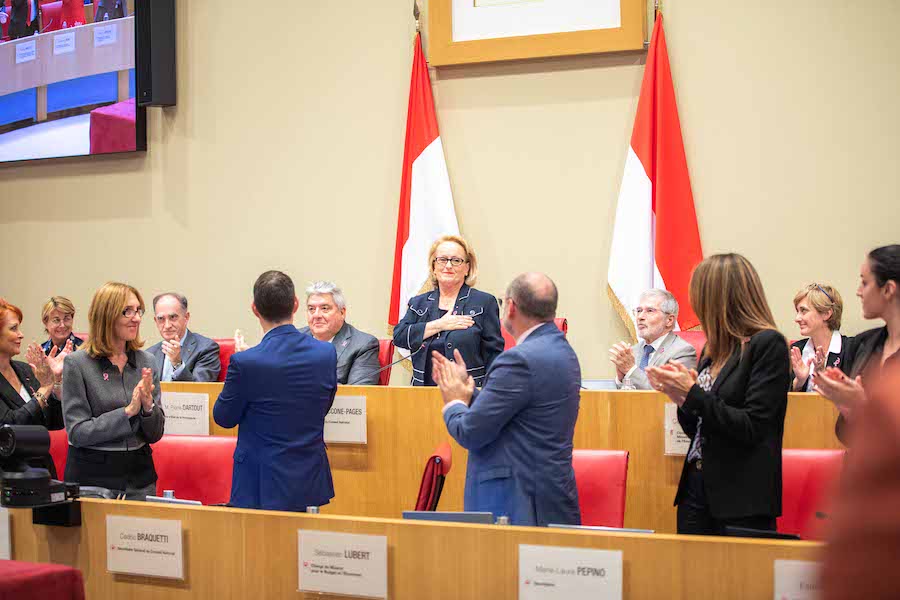All of the Principality’s educational institutions have pledged to reduce greenhouse gas emissions by signing the School Pact for Energy Transition, under the proud gaze of Prince Albert II and representatives of his government.
On Wednesday 28th September, ahead of the official signing ceremony, Isabelle Bonnal, Commissioner General in charge of the Department of National Education, Youth and Sports (DENJS) praised the “strong values shared in this common path”, saying that she had “great pride in the idea that the whole community is getting ready for this unanimous approach” to a cleaner Principality. She also highlighted the role of schools as an “excellent lever for changing behaviour and training citizens to respect the environment”.
Minister for Equipment, the Environment and Urbanism Céline Caron-Dagioni said that she was also pleased to see this important project come to fruition: “This approach concerns our children, our future. It’s a huge chance that you give them”.
The School Pact has been co-developed by both the DENJS and the Mission for Energy Transition after more than a year of regular meetings and intensive discussions between the heads of establishments, the teaching and non-teaching staff, educational advisers, and several engaged students.
It results in “special and tailor-made support for each establishment for the operational implementation of the actions of the National Pact”.
The School Pact has been signed by all primary schools, colleges, high schools, the International University of Monaco (IUM) and the International School of Monaco (ISM).
Photo above: Surrounding Prince Albert, from left to right, alongside the Signatory Heads of Establishments, Annabelle Jaeger-Seydoux, Director of the Mission for Energy Transition, His Excellency Monsignor Dominique-Marie David, Archbishop of Monaco, Isabelle Bonnal, General Commissioner in charge of the Department of National Education, Youth and Sports, Patrice Cellario, Minister of the Interior, and Céline Caron-Dagioni, Minister of Equipment, Environment and Urban Planning. Credit: Manuel Vitali, Government Communication Department

